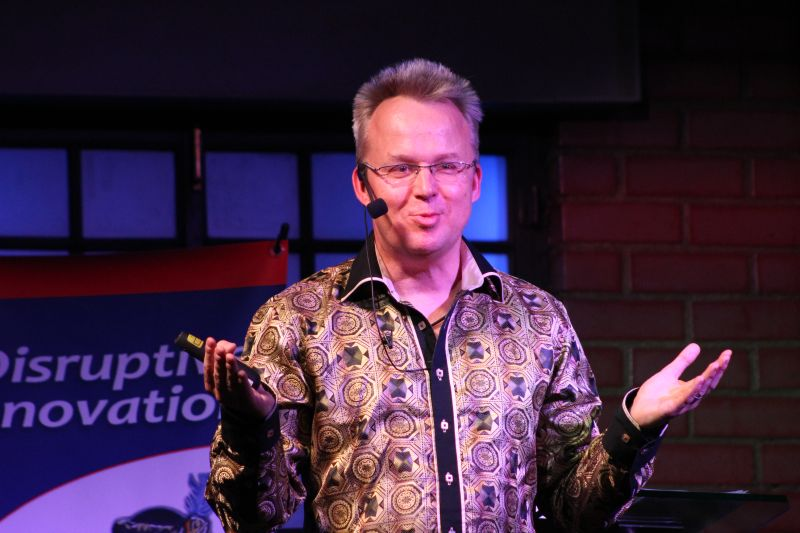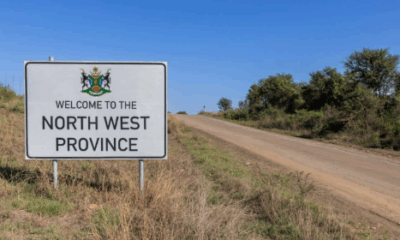Business
From Township Fields to Boardroom Deals: How Community Sports Could Be South Africa’s Next Big Economic Play

On any given weekend, you’ll find them there.
Kids chasing a ball through the dust of a township pitch, teenagers perfecting their netball shots on a cracked court, and parents doubling as coaches, referees, and cheerleaders. It’s the heartbeat of South Africa that rarely makes headlines — but it could be the key to fixing two of our biggest challenges: unemployment and lost hope.
More Than Just a Game
With over 60% of the unemployed under 35, South Africa’s youth crisis is not just about a lack of jobs — it’s about a lack of belief.
And yet, we’re a nation of sporting giants. From the Springboks’ back-to-back Rugby World Cup wins to Wayde van Niekerk’s world-record sprint and Dricus du Plessis dominating the MMA world, we’ve shown that our talent is world-class.
But here’s the thing: talent alone doesn’t change economies. Systems do.
Countries like New Zealand, Brazil, and Kenya have built structured pathways from grassroots sport to professional careers, creating thriving industries along the way. South Africa has the passion. Now it needs the plan.
The Untapped Sports Economy
Globally, sport is a $600 billion industry. It’s not just about players and trophies — it’s about coaches, nutritionists, event planners, data analysts, physiotherapists, photographers, merchandise makers, and entire tourism ecosystems.
In South Africa, grassroots sport remains largely informal. Formalising and funding community sport could turn that township netball coach into a small business owner, the weekend football organiser into an SMME, and the local athletics meet into a job-generating festival.
Why Play Builds Futures
Research shows kids who play sport are 40% more likely to finish school and far less likely to end up in crime or substance abuse. Sport teaches discipline, teamwork, and resilience — the same traits employers and entrepreneurs value most.
But for many young South Africans, the playing field is also a training ground for life. It’s where they learn to set goals, manage setbacks, and dream beyond their current reality.
From 2010 Lessons to 2026 Opportunities
We’ve seen this work before.
In the run-up to the 2010 FIFA World Cup, South Africa trained over half a million people in hospitality through its Brand Ambassador Programme. The result? Jobs, skills, and a tourism sector that still benefits from that investment.
Fast forward to 2026, when LIV Golf arrives in South Africa. While the global spotlight will be on luxury suites and pro players, the real opportunity lies in linking the event to caddie training, township golf clinics, tourism SMMEs, and grassroots sport programmes.
A National Game Plan
This is not about charity — it’s about nation-building. Imagine:
-
Youth Sport Hubs in townships and rural areas that double as training centres, entrepreneurship incubators, and safe spaces.
-
Monthly Local Sport Festivals that fuel small businesses, tourism, and community pride.
-
Public-Private Partnerships where corporates fund leagues in exchange for talent pipelines and tax breaks.
-
A National Volunteer Corps of trained community coaches and referees earning stipends while building experience.
Each young person employed in community sport doesn’t just earn a salary — they support a family, reduce social burdens, and contribute to the economy.
The Digital Edge
This isn’t just about fields and balls. It’s about using technology — from mobile payments to livestreaming — to help a young sports photographer in Soweto build a portfolio or a teen football organiser run a profitable event.
With access to networks, mentors, and tools, today’s grassroots hustlers could be tomorrow’s sports entrepreneurs.
Final Whistle
South Africa already has the passion and talent. What’s missing is the structure and investment to turn weekend games into national growth. If we get this right, the scoreboard won’t just show goals and tries — it will measure how many young South Africans still believe they can win, in sport and in life.
Source:IOL
Follow Joburg ETC on Facebook, Twitter , TikTok and Instagram
For more News in Johannesburg, visit joburgetc.com



























